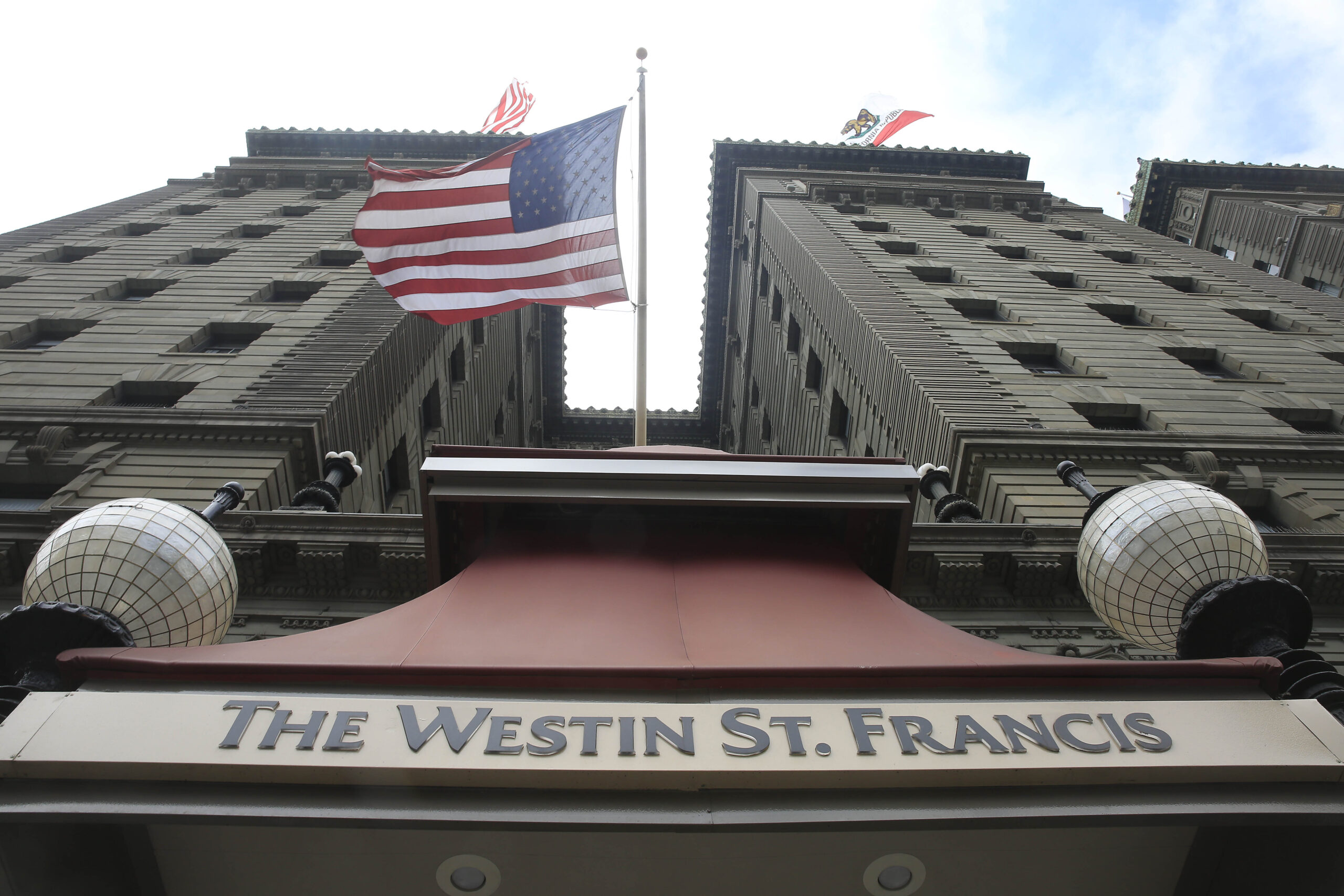The owners of San Francisco’s most iconic buildings are looking to cut their property assessments, a worrying sign of a potential collapse in property values that could handcuff the city by eroding its number one source of tax revenue.
Owners who believe their property assessments—and associated tax bills—are too high can appeal their case to San Francisco’s Assessment Appeal Board. That board determines whether a property should be revalued temporarily.
While assessment appeals are common, there’s been a definite uptick during the pandemic as companies dumped office space, businesses shuttered and tourists avoided the city. The 5,113 total appeals filed in 2020 and 2021 is nearly double the 2,666 filed in 2018 and 2019.
The deadline to file for this year was Sept. 15, and officials expect to tabulate the full number of appeals by sometime in October. But the decisions on whether to reduce owners’ tax bills may be years away as the board works through a backlog of applications.
Still, the appeals are a sign of what might lay ahead for the city’s fiscal situation. Here’s a rundown of landmark properties trying to cut their assessments for the 2022-23 fiscal year.
Transamerica Pyramid Complex
Formerly the city’s tallest building, and still one of the most striking features of its skyline, the Transamerica Pyramid at 600 Montgomery St. and two adjacent buildings at 505 and 545 Sansome streets are worth less than they used to be, according to their owners.
They’re seeking to reduce the complex’s assessed value by more than half, applying for a temporary reduction to $311.8 million from $653.8 million. The year prior, the property owners attempted to temporarily reduce the value of the property to $361.5 million. That appeal is currently pending a March 2023 hearing. The effort is a bit ironic: After acquiring the building in 2020 for $650 million, a group of investors led by New York developer Michael Shvo and Deutsche Finance kicked off a $400 million renovation.
Westin St. Francis San Francisco
The historic Westin St. Francis, which at 1,200 rooms ranks among the city’s largest hotels, is seeking to temporarily reduce the value of its two properties at 301 Powell St. and 455 Post St. by more than 90%, from an assessed value of $1.04 billion to $101 million.
This one may be a bit of a stretch: According to reporting from the San Francisco Business Times, which first reported on the hotel’s appeal, the company’s own mortgage assessors valued the property at $760 million as of March 2022.
Uber Mission Bay HQ
Uber’s four-building Mission Bay campus, a stone’s throw from Chase Center, was envisioned as another jewel of the area and lauded for its architectural innovation.
But the ride-hailing firm has begun to reevaluate its office space needs, reportedly seeking to unload a large chunk of its space at the Mission bay complex. Uber owns a stake in the headquarters, along with Alexandria Real Estate Equities and the Golden State Warriors. The city assessed the entire complex, which spans 1455, 1509, 1566 and 1725 Third St., at around $1.27 billion. Its owners are seeking to temporarily cut the value of the complex to $625.5 million.
Macy’s Union Square
The building at 251 Geary St. houses the Macy’s flagship store, but the department store is looking to cut its value by half: The city currently assesses its value at $345.3 million, while Macy’s believes it’s worth $177.2 million.
Macy’s previously owned and operated several buildings and locations across San Francisco, but has retrenched in recent years. In 2019, the company sold the nearby 233 Geary St. building, which houses Louis Vuitton, for a potential mixed-use redevelopment. In 2020, the company closed its digital division in San Francisco with plans to relocate operations to Atlanta and New York.
Market Center
The two-building Financial District complex at 555 and 575 Market St. served as the longtime headquarters of Chevron before the oil giant decamped to San Ramon. In 2019, public real estate company Paramount Group, Inc. purchased the complex for $722 million.
In both 2020 and 2021, the property owner has sought to reduce the value of the complex to $565 million, even as the city has assessed the value of the property at $735.8 million and $744.1 million, respectively.
123 Mission
The SoMa office tower, owned by e-cigarette company Juul, is currently less than 30% leased, according to data from CoStar. Juul purchased the building in 2019 for $397 million, prior to a regulatory crackdown that restricted e-cigarettes.
Since then, the company has sought to offload the property in a number of aborted deals and has regularly asked the city to drop the assessed value of the property. For 2022, the company is seeking a 50% reduction to $204.5 million, compared to a $408.9 million assessment by the city.
